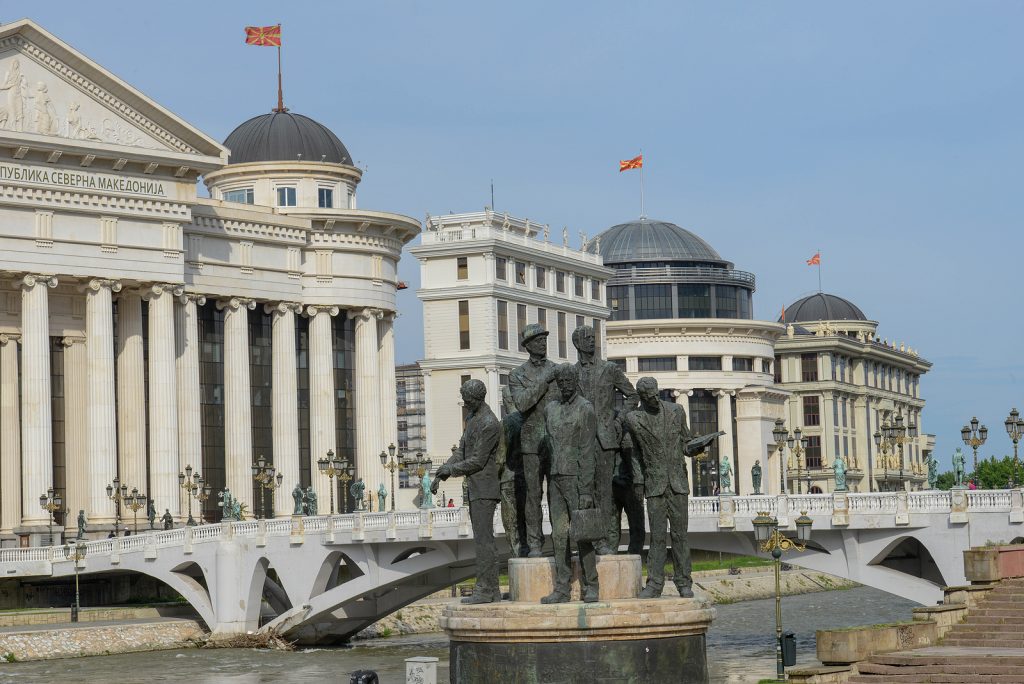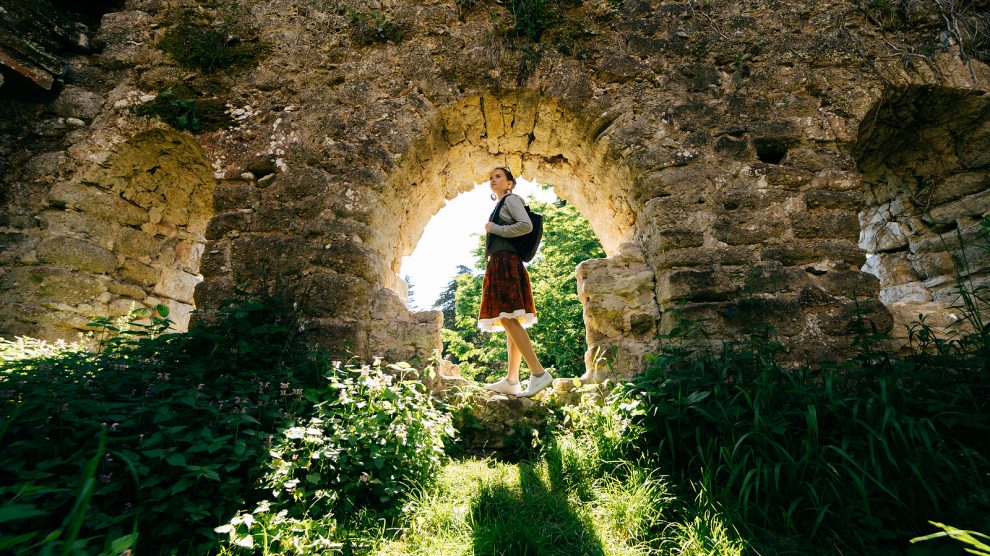In mid-July I had the brilliant idea of taking a graduation trip to two of the five least-visited countries in all of Europe – Kosovo and North Macedonia. While I was not expecting to be entirely alone, I was pleasantly surprised to meet quite so many tourists along the way.
According to the World Tourism Organisation’s pre-Covid data, in 2019 North Macedonia was the fifth least-visited country in Europe, with just 750,000 foreigners entering the nation throughout the year.
Kosovo was the third least-visited, with just 193,000 foreign citizens stopping by, ahead only of Moldova and the micro-state of Liechtenstein.
- Travel the Balkans, even if Mother tells you not to
- Doing away with borders in the Western Balkans is a great idea, but infrastructure must not be neglected
- Transformed Tirana gets it moment in the spotlight
There are three types of tourists who visit the two states: diaspora, visitors from neighbouring countries, and – increasingly – backpackers from every corner of the world.
Traveling from Western Europe, the most convenient way to get to both countries is by flying to either Skopje or Prishtina airports. As I was starting my trip in Sofia, Bulgaria, however, flying was not an option. Not possessing a car, and with trains non existent, the only option open to me was the bus, a method of transport that many people have now realised is the only viable way to travel around the Balkans without your own car.
While far from a luxurious mode of transport (to say the least), adventure seems to be what motivates the surprisingly high number of non-Balkan travellers I met on both the bus from Sofia to Skopje, and from Skopje to Prishtina. The same was true coming back the other way.
After joining in with a conversation on the Bulgaria-North Macedonia border between two Canadian students pursuing master’s degrees in international relations, and a British national with Algerian roots who had already travelled to over 70 countries, I discovered that their motivation was to take in as many Balkan countries as they can at once.
I think it’s fair to assume that the same applies for most visitors to the region.
Aside from the odd grandma who wanted to be picked up from a random village in Bulgaria and dropped off at another random village in North Macedonia (the true adventurers on that bus), other travellers included a British girl in her early twenties who was raised in Singapore and was now living in Greece, a Kiwi girl on her gap year aiming to visit every country in Europe that is currently open to tourists, and a group of Spanish university students who just wanted to see the Balkans.
It all begins in Sofia
They were all on a budget and had for this reason flown to Sofia Airport, which during summertime operates a very high number of budget airline flights to and from almost anywhere in the EU.
Even on the buses from Skopje to Prishtina and back, and in Prishtina itself, I met several other travellers who had flown to, and/or were planning to travel back home via Sofia.
Sofia Airport: Gateway to the lesser-visited Balkans. They should use that in their marketing.
Other intriguing individuals on the bus from Skopje to Prishtina included a group of Americans who were discussing the geography and travel channels they watch on YouTube and what they know about this region of the world, while excitedly awaiting to for their passports to be stamped at the North Macedonia-Kosovo border: a “privilege” not given to EU passport holders.
It is also easy to meet backpackers travelling by bus around the region on the Prishtina Free Walking Tour, which was mostly made up of Germans, as well as a few British and Scandinavian tourists.
One British-Pakistani girl taking part the tour had taken the wrong bus in Tirana, Albania, and had accidentally ended up in Prishtina instead of Skopje. While she noted that she had never travelled to a country by accident before in all her travels, she admitted that the small, diverse, easy, and (relatively) cheap Western Balkan countries make visiting this part of the world unique.

As safe as anywhere
As women in our early twenties we also discussed the safety of travelling the region.
“In the UK there are certain stereotypes about the Balkans and human trafficking,” she said, but then acknowledged that at no point in her journey was she ever made to feel unsafe or uncomfortable by locals.
While human trafficking is indeed an issue in multiple countries in this region, it is highly unlikely that a random person, whether from the Balkans or elsewhere, with no existing ties to organised crime, will become a victim.
Travel to North Macedonia, Kosovo and other neighbouring countries by bus is safe for everyone. It is also incredibly affordable – getting from one country to another costs around 10 euros.
One common myth amongst bus travellers in the Balkans is that the one border that should never be crossed (at least by bus) is that between Kosovo and Serbia.
There is some truth to this, as Serbian border control stamps all passports, including those of travellers from the EU. And as they insist the North Macedonia-Kosovo border is actually a Serbian border, they will ask how you managed to enter “Serbia” without receiving a Serbian stamp in your passport.
It is of course impossible to get a Serbian stamp on the North Macedonia-Kosovo border as it is entirely operated by Kosovar and North Macedonian officials.
As such, there are many stories doing the rounds about foreigners trying to enter Serbia through Kosovo who have been denied entry and left stranded on the border.
There is, however, an easy way around this (for EU citizens at least) – simply show an identity card instead of a passport.
Don’s fear the bus
The weather, nature, food, architecture and even people’s attitudes in the Balkans are easily comparable to anywhere else in Southern Europe and it is a shame that this part of the continent remains relatively under-explored.
So it was encouraging to see so many from outside the region making the effort. It’s a positive sign and begets optimism that more will follow in the future.
And as a final word, while the rather poor infrastructure links unquestionably contribute to the lack of tourism in this absolutely stunning part of Europe, there are, as I discovered, benefits to taking the bus: the chance to meet interesting people is not the least of them.
Buses in the Balkans, like North Macedonia and Kosovo, have a charm all of their own.
Unlike many news and information platforms, Emerging Europe is free to read, and always will be. There is no paywall here. We are independent, not affiliated with nor representing any political party or business organisation. We want the very best for emerging Europe, nothing more, nothing less. Your support will help us continue to spread the word about this amazing region.
You can contribute here. Thank you.



